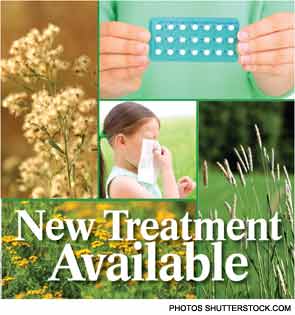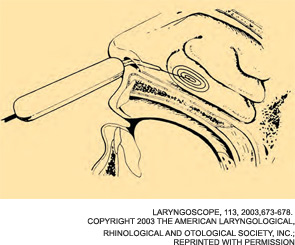Laboratory and imaging studies have limited value for the diagnosis of acute rhinosinusitis
Toxins from Food Mold Reduce Respiratory Mucosal Ciliary Function
Toxins from mold found growing on nuts or corn can weaken the airways’ self-clearing mechanisms and immunity, opening the door for respiratory diseases and exacerbating existing ones
Allergens from Cats and Cockroaches Linked to Glaucoma Risk
Contact with cats and cockroaches may increase the risk for glaucoma, but contact with dogs could guard against the eye disease, say authors of a new study.

Immunotherapy Benefits for Treating Allergic Rhinitis
Research finds patients with seasonal allergies not well controlled by medication can be offered sublingual tablet immunotherapy

New Guideline on Diagnosing, Treating Allergic Rhinitis

Corticosteroid Nasal Sprays Approved for Over-the-Counter Use
How approval may impact treatment of allergy patients, otolaryngology practices

FDA Approves First Sublingual Allergy Immunotherapy Agents
Medications Oralair, Grastek, Ragwitek are designed to treat grass pollen-induced rhinitis, ragweed allergies
SCIT Effective for Asthma, Allergic Rhinitis
How safe and effective is subcutaneous immunotherapy (SCIT), particularly single allergen regimens, for treating allergic rhinoconjunctivitis and asthma?
American Academy of Otolaryngic Allergy Focused on Advocacy, Patient Care
Organization offers education, research opportunities and funding

Another Option for Allergic Rhinitis?: Study examines long-term safety, efficacy of RF turbinoplasty
When patients with allergic rhinitis don’t respond to medical therapy, an otolaryngologist’s arsenal of treatment includes surgical options. Among these is radiofrequency (RF) turbinate reduction, also known as RF turbinate ablation or turbinoplasty, an office procedure that advocates say is cost-effective and minimally invasive, with fewer complications than other surgical remedies. Some otolaryngologists, however, are still hesitant to use this relatively new therapy.
